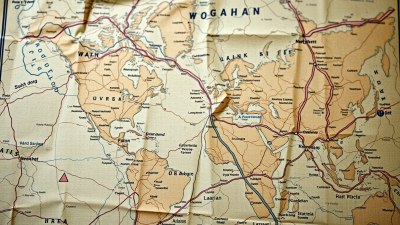Why Every Traveler Should Try an Off-the-Grid Escape
Discover the unique benefits of off-the-grid travel and why it should be on your bucket list.

Travel has always been about exploration, adventure, and the pursuit of experiences that broaden our horizons. In today's fast-paced world, where connectivity is a constant, many travelers yearn for a retreat from the digital noise. An off-the-grid escape provides not only a break from technology but also offers a unique opportunity to reconnect with nature, oneself, and the simpler aspects of life. This article delves into why every traveler should consider embarking on an off-the-grid adventure at least once in their lifetime.
Understanding Off-the-Grid Travel
Off-the-grid travel refers to journeys that take you away from mainstream tourism, where the usual amenities such as Wi-Fi, electricity, and cellular service are limited or entirely absent. This type of travel encourages the spirit of adventure and self-sufficiency, immersing individuals in environments often untouched by modern society. From rustic cabins in remote mountains to secluded beaches and hidden forests, the allure of off-the-grid locations lies in their ability to bring you closer to nature and help you escape daily life’s stresses.
Benefits of Off-the-Grid Escapes
1. Disconnect to Reconnect: One of the primary reasons to go off-grid is the opportunity to disconnect from technology. In a time when smartphones and constant notifications dominate our lives, taking a step back can rejuvenate the mind and body. Experiencing nature without the distractions of social media or news allows travelers to reconnect with themselves and their companions, fostering deeper connections.
2. Enhanced Awareness of Nature: By immersing yourself in an off-the-grid environment, you develop a heightened awareness of nature. Listening to the rustle of leaves, feeling the texture of the soil, and appreciating natural beauty become integral parts of the experience. This connection to the environment can be grounding, inspiring mindfulness and a greater appreciation for the planet.
3. Unique Experiences: Off-the-grid destinations often provide unique experiences unavailable at conventional tourist spots. Imagine canoeing in a crystal-clear lake surrounded by towering mountains, hiking through untouched wilderness, or staying in a yurt under the stars. These memorable experiences often lead to personal growth, as they challenge you to step outside your comfort zone.
4. Sustainable Travel: Many off-the-grid accommodations and destinations prioritize sustainability. By choosing to travel to these places, you're often supporting local economies and environmentally-friendly practices. You may find eco-lodges powered by renewable resources or farms offering organic produce, contributing to a more sustainable travel experience.
5. Learning Self-Sufficiency: Going off the grid often requires a degree of self-sufficiency. Whether it's cooking over a campfire, filtering water, or navigating without GPS, these skills can boost your confidence and resourcefulness. Such experiences teach valuable life skills that transcend travel, instilling a sense of accomplishment.
Finding Your Off-the-Grid Destination
Choosing the right destination for your off-the-grid escape depends on your interests and comfort level. Here are some popular types of off-the-grid experiences to consider:
1. Remote Cabins: Many travel companies offer cabins in remote locations, allowing you to experience nature without sacrificing comfort. These cabins often come with stunning views and are equipped with basics like cooking facilities.
2. Camping: For those seeking adventure, traditional camping could be the ultimate off-the-grid experience. Whether setting up a tent in a national park or backpacking to a secluded spot, camping forces you to slow down and appreciate your surroundings.
3. Farm Stays: Staying on a working farm allows travelers to engage with rural life while enjoying fresh produce. Many farms offer guests the chance to participate in chores or enjoy farm-to-table meals, which can be rewarding and educational.
4. Nature Retreats: Many retreats offer off-the-grid experiences centered around wellness, yoga, or spiritual growth. These locations often focus on mindfulness and personal development through immersion in nature.
5. Wildlife Sanctuaries: Volunteering at wildlife sanctuaries often puts you in off-the-grid situations while giving back to the community and wildlife. This can also provide thrilling experiences like guided night hikes or animal care activities.
Preparing for Your Off-the-Grid Adventure
Preparation is key for a successful off-the-grid experience. Here are some essential tips to ensure you’re ready:
1. Research Your Destination: Understand the terrain, climate, and local wildlife of your chosen location. This knowledge will help you pack appropriately and stay safe.
2. Pack Smart: Bring lightweight, multifunctional gear. Essential items include a first-aid kit, camping gear, non-perishable food, water purification supplies, and navigation tools. If you’re not experienced, consider going with someone who is or joining an organized group.
3. Leave No Trace: Respect the environment by adhering to “leave no trace” principles. This includes packing out all trash, minimizing campfire impact, and staying on trails to preserve natural habitats.
4. Stay Safe: Check in with someone about your plans and expected return. Know the local emergency contacts and have a safety plan in case of unexpected situations.
5. Embrace the Experience: The point of going off the grid is to enjoy the experience. Take time to explore, be present in the moment, and absorb the beauty of your surroundings.
Inspirational Stories from Off-the-Grid Travelers
Sharing stories of experiences can inspire others to embark on their own off-the-grid adventures. Many travelers return with tales of unexpected encounters with wildlife, breathtaking landscapes, or simply a refreshed perspective on life. For instance, a family who spent a week camping in a national park reported a transformed relationship with nature and each other as they bonded over shared challenges and experiences.
Another story tells of a couple who decided to unplug completely while staying in a remote cabin. They spent their days hiking and their evenings stargazing, leading to a profound appreciation for the natural world and a renewed connection with each other.
The Future of Off-the-Grid Travel
As travelers become increasingly aware of the impact of mass tourism on the environment, the off-the-grid movement is expected to grow. More people are likely to seek sustainable travel experiences that allow them to connect deeply with nature while minimizing their ecological footprint. This shift can lead to a broader consciousness about how we travel and our responsibility to protect the planet.
In conclusion, off-the-grid escapes offer a unique opportunity for every traveler to find solitude, adventure, and connection with nature. As you plan your next getaway, consider taking the leap into a less-traveled path. You may return not only with stories to tell but with a renewed perspective on life and the world around you.











